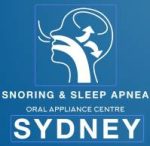
Let’s explore some additional signs and symptoms of sleep apnea:
1. **Restless Sleep:**
– Frequently changing sleep positions or experiencing restlessness during the night.
2. **Insomnia:**
– Difficulty falling asleep or staying asleep may be indicative of sleep apnea.
3. **Difficulty Staying Asleep:**
– Waking up frequently during the night, sometimes accompanied by a choking or gasping sensation.
4. **Nocturia (Frequent Urination at Night):**
– Needing to urinate more than once during the night, disrupting continuous sleep.
5. **Decreased Libido:**
– Reduced sexual drive and performance can be associated with sleep apnea.
6. **Difficulty Paying Attention:**
– Impaired ability to concentrate, leading to difficulties in work or daily tasks.
7. **Memory Impairment:**
– Forgetfulness and memory issues, often related to disrupted sleep patterns.
8. **Depression and Anxiety:**
– Mood disorders may be exacerbated or triggered by untreated sleep apnea.
9. **Morning Nausea or Acid Reflux:**
– Waking up with a sour taste in the mouth or experiencing acid reflux symptoms.
10. **Chest Pain at Night:**
– Some individuals with sleep apnea may experience chest pain or discomfort during the night.
11. **Sudden Awakenings with a Sensation of Suffocation:**
– Abruptly waking up feeling breathless or struggling to breathe.
12. **Sweating at Night:**
– Experiencing excessive sweating during sleep, unrelated to room temperature.
13. **Impaired Judgment:**
– Difficulty making decisions or assessing situations accurately.
14. **Microsleep Episodes:**
– Brief, involuntary periods of sleep during waking hours, especially during sedentary activities.
15. **Children’s Symptoms:**
– Bedwetting, night sweats, hyperactivity, and poor academic performance in children.
Recognizing these signs and symptoms is crucial for early detection and intervention. If you or someone you know experiences a combination of these indicators, consulting with a healthcare professional is recommended for a comprehensive evaluation and appropriate management.

